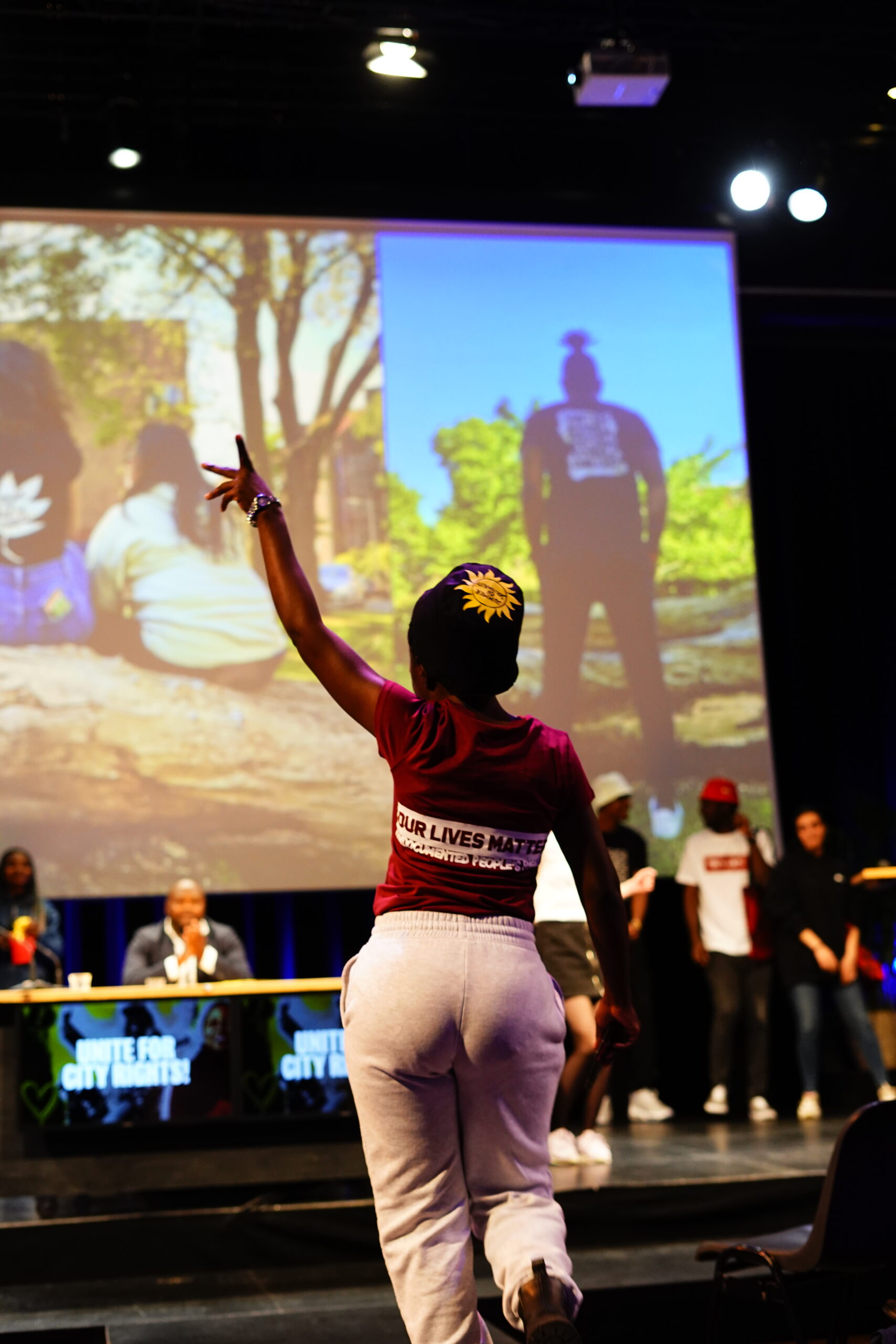PrintRights is a project initiated by Here To Support and Amsterdam City Rights but inspired by Top Manta Barcelona.The PrintRights team is a group of young undocumented people in Amsterdam supported by Here To Support as the legal foundation of the project.
PrintRights is a project initiated by Here To Support and Amsterdam City Rights but inspired by Top Manta Barcelona. It was founded as a reaction to the Pandemic and the necessity for face masks but grew over the years into a project about empowerment, entrepreneurship and dignifying lives.


As a response to the pandemic, we began sewing reusable facemasks and handing those out to the homeless and refugee shelters in Amsterdam. As this proved to be a success, we grew further and the team started to think about new experiments. Using a donation system for the facemasks, which were distributed in different shops throughout the city, the undocumented people behind PrintRights were able to generate their own income while also getting their political messages abroad. From sewing facemasks, it developed into addressing the challenges of undocumented people in general and specifically in employment.
PrintRights started to expand and use clothes to engage with certain topics in the city, like the ongoing housing crisis. The team connected the housing demonstration to the struggle of undocumented people to get the political messages into the public debate. The skills that have been shared and developed between the team entirely mirror a successful startup venture.
Through a multi-tiered organisation plan, the group was involved in designing, scheduling production shifts, transportation/delivery and packaging of the masks, promotion, sending call-outs to our network for support and for donations, and engaging with supporters and customers. This required diligent teamwork, dedication, and solid organisation. We have seen the masks being worn all over the city, which has raised awareness of the mission of the organisation and also as a visual reminder of what PrintRights signifies.
The operation has proven to be an entrepreneurial venture with a wide range of skills within the team which we were also able to further develop. Another good outcome of the project is the sales aspect which has allowed for engagement with our neighbors — this has happened both through online sales via social media, and also in-person at the first PrintRights pop-up shop that was set up from zero and ran during the Christmas period 2021.
The second pop-up shop also grabbed the attention of a lot of neighbors who stopped by and came in. This pop-up shop was linked to the mobilization in Amsterdam for the demonstration of the Housing Crisis. The pop-up store was effective in increasing the attention to the connection between the housing crisis and undocumented migrants in the city.
To conclude we can see that by connecting the designs to current public debates, the impact and attention for the shop were increased.
A struggle yet still in the project is that even though the undocumented people participating benefitted a lot from the structure and project, it is also hard to maintain the continuality as the lives of undocumented people are often disturbed. The practice needs a broad team and people who can step in if others have to quit. The support offered by the structure of Here To Support is therefore of tremendous importance to keep the continuality, but at the same, it allows for the undocumented team to keep dreaming bigger and take the next steps.
The ability to self-govern and self-organize lent itself entirely well to this exercise in starting a business, so to say. The entrepreneurial skills that came from this project are valuable for undocumented people also in the future.
The second benefit we see is that it has the capability to also connect undocumented struggles to other struggles in the city. This connection has an impact on both the awareness about undocumented people as it also makes them the tellers of their own story.